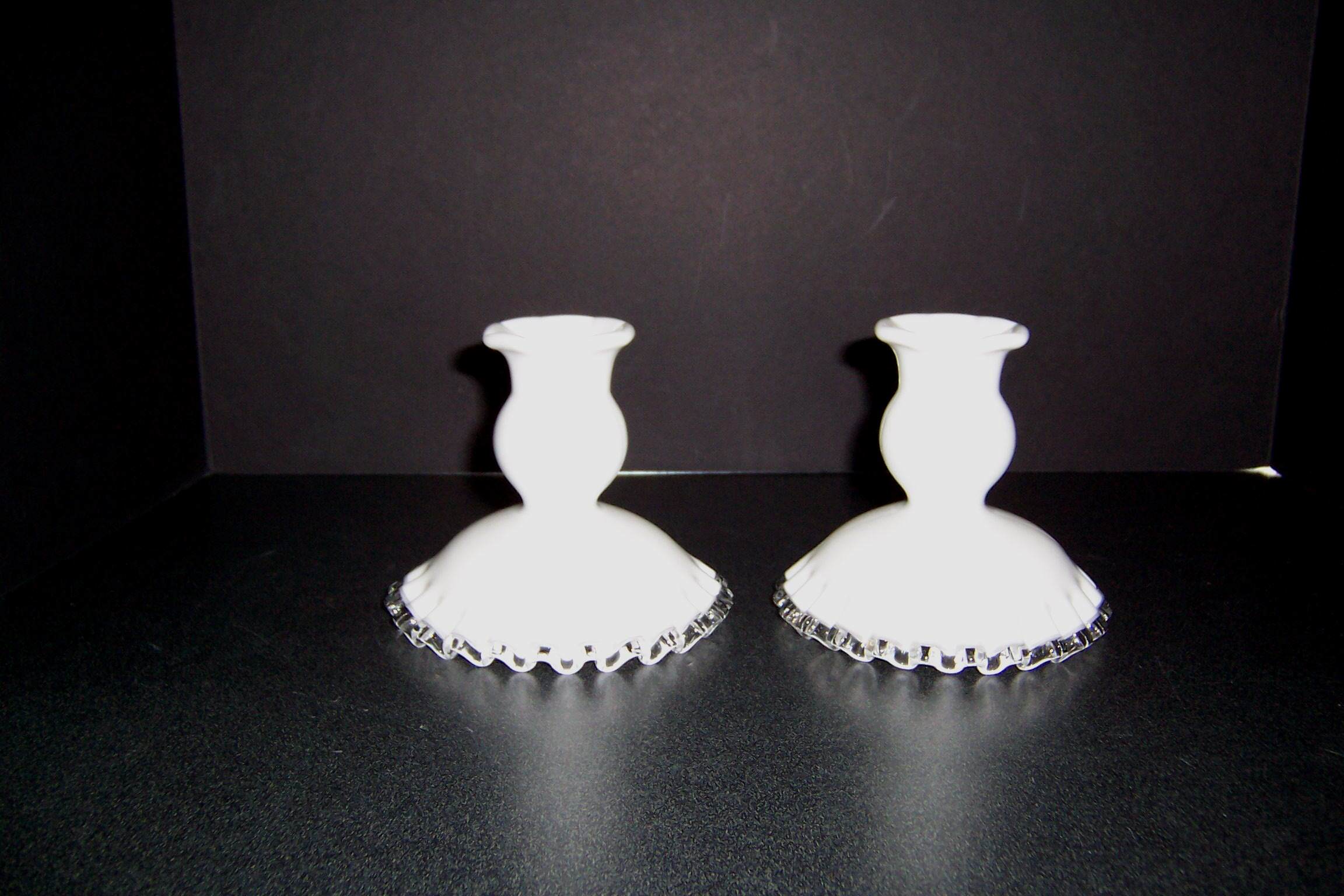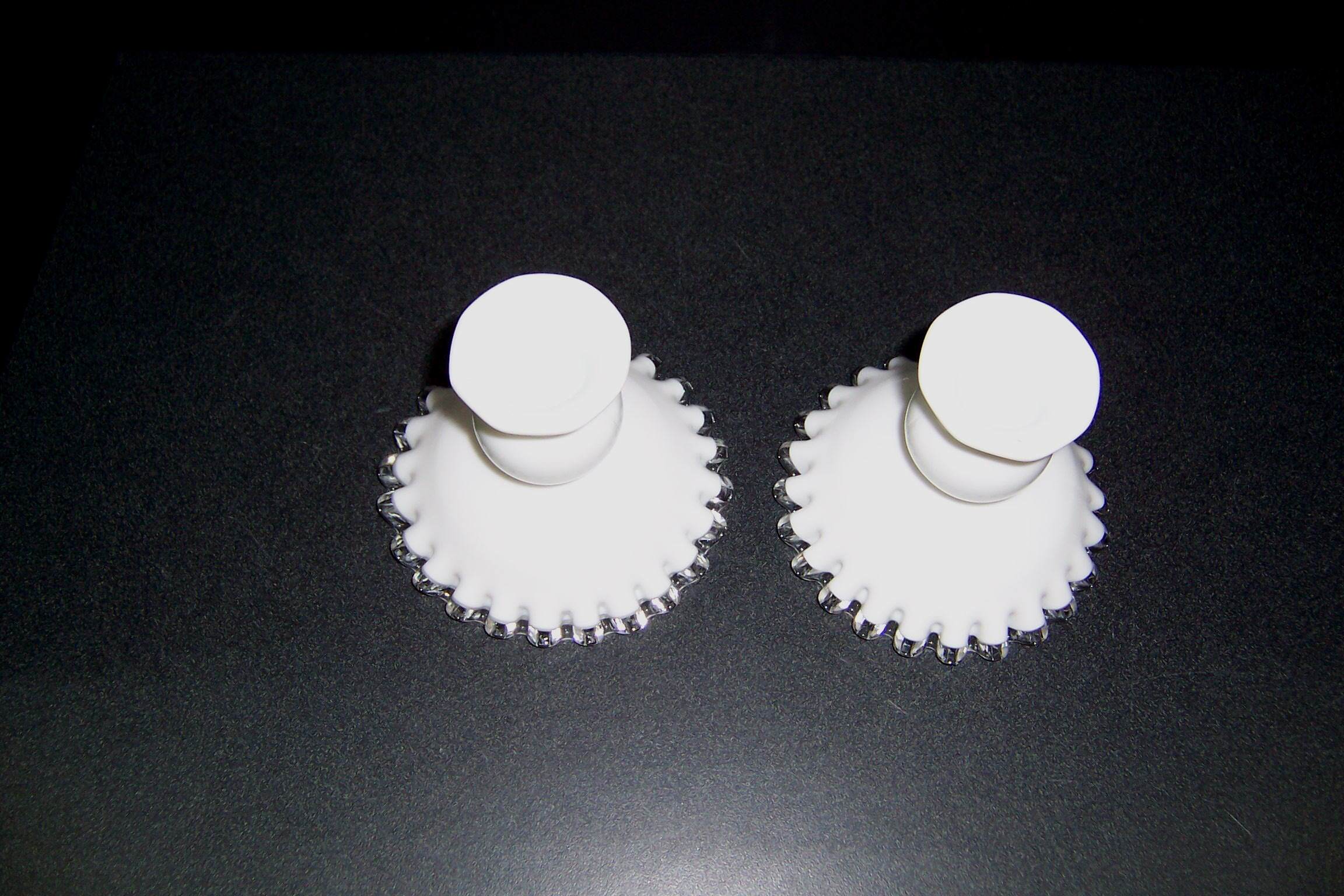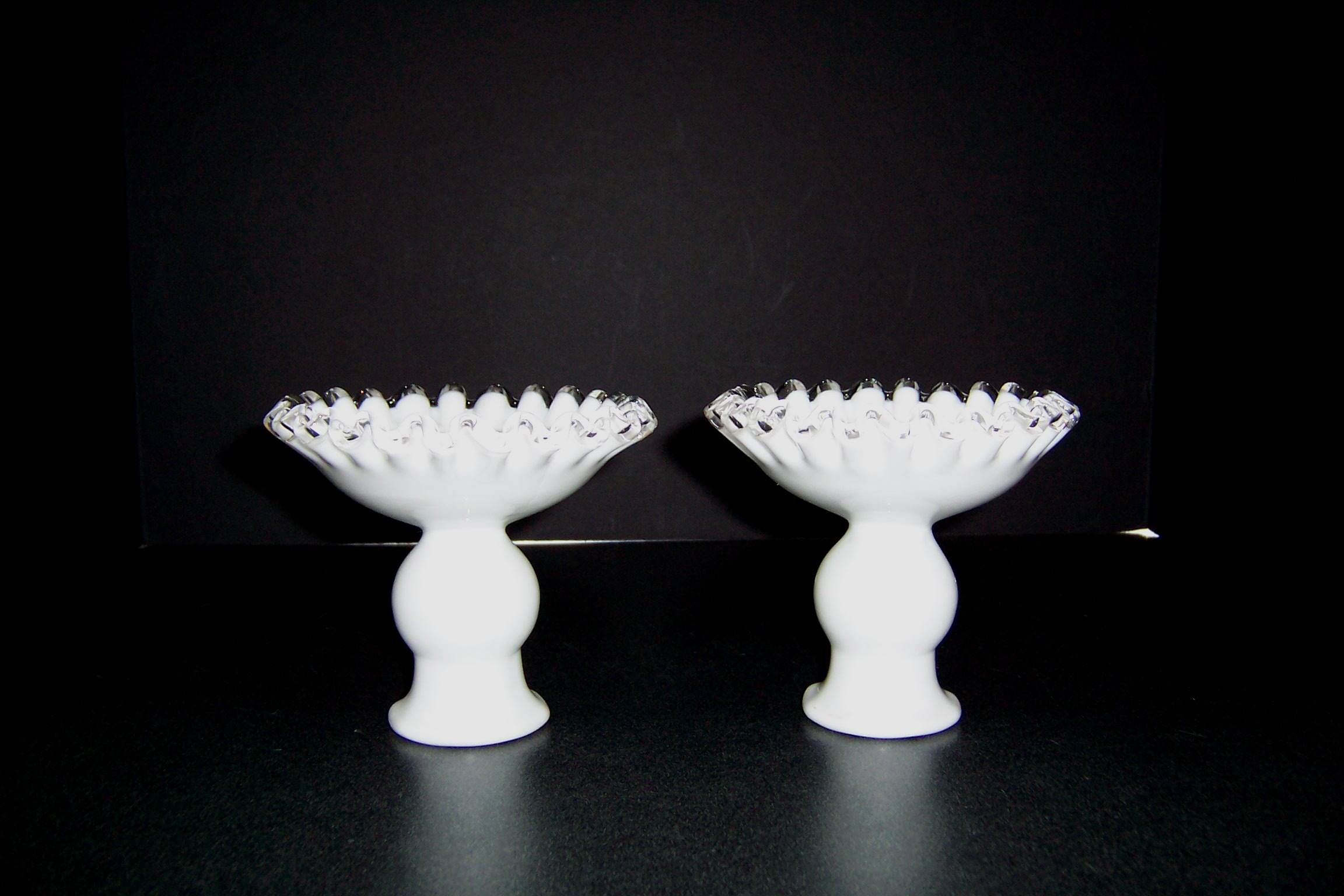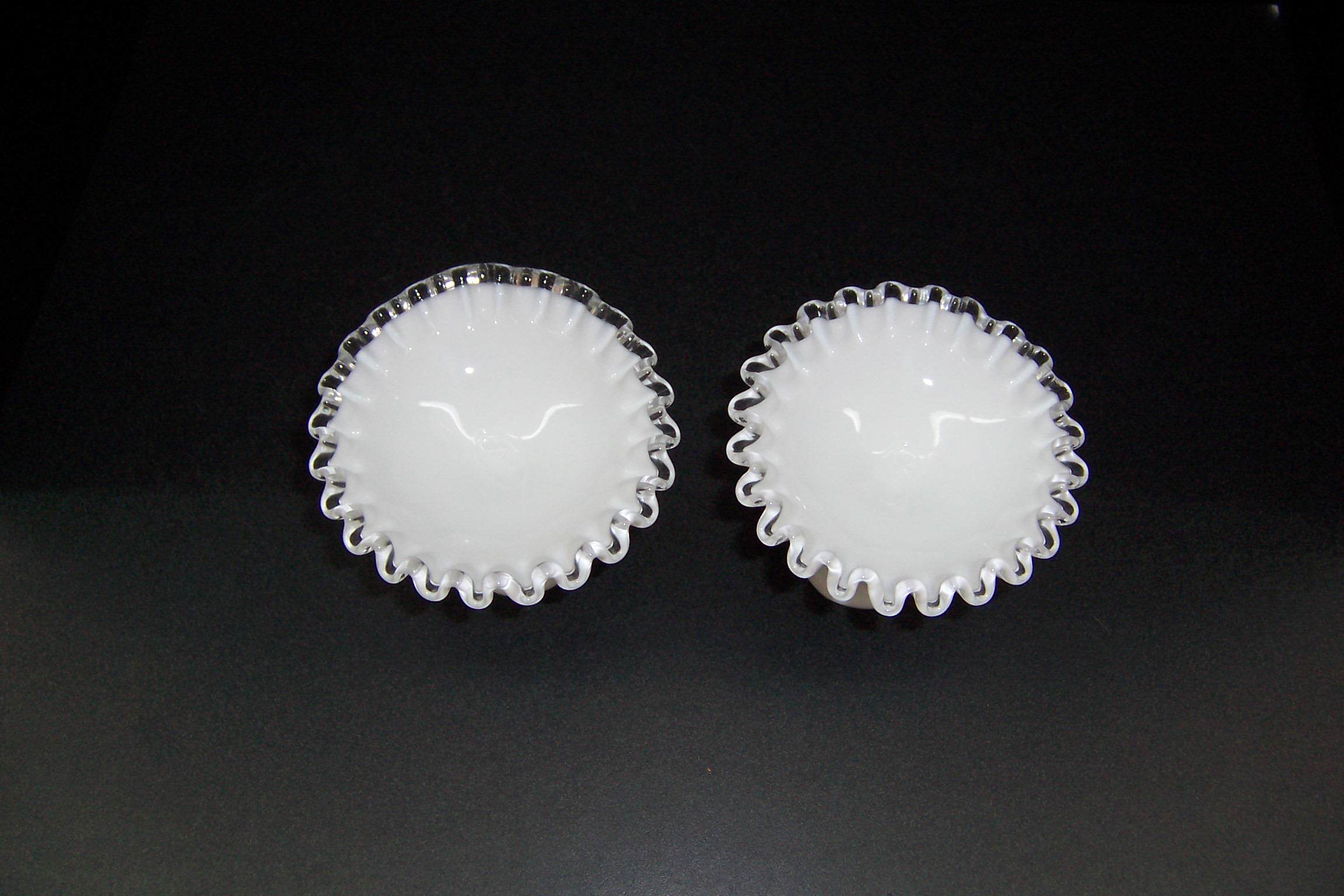Description
2 Fenton Silver Crest Milk Glass Candle Holders in great condition. They measure 4″ high x 4.25″ diameter.
The Fenton Art Glass Company was founded in 1905 by brothers Frank L. Fenton and John W. Fenton in an old glass factory in Martins Ferry, Ohio. Originally, they painted glass blanks from other glass makers, but started making their own glass when they became able to buy the materials they needed. They moved across the Ohio river to Williamstown, West Virginia, and built a factory in 1906. The first year for glass production was 1907.
Frank Fenton was the designer and decorator. From 1905 to 1920, the designs made there were heavily influenced by two other glass companies: Tiffany and Steuben. But the many different colors were the work of Jacob Rosenthal, a famous glass chemist who is known for developing chocolate and golden agate glass. Towards the end of 1907, the Fenton brothers were the first to introduce carnival glass, which later became a popular collector’s item.
During the Great Depression and World War II, Fenton produced practical items (such as mixing bowls and tableware) due to shortages. At the same time, they continued creating new colors. Towards the end of the Great Depression they also produced perfume bottles for the Wrisley Company in 1938. The bottles were made in French opalescent glass with the hobnail pattern.
In 1939, Fenton started selling Hobnail items in milk glass. Hobnail milk glass would become the top-selling line and allowed the Fenton company to expand.
In the late 1940s, the top three members of Fenton’s management died. Frank Fenton and Wilmer C. “Bill” Fenton immediately stepped in and took over the positions of President and Vice President, respectively. Over the next thirty years, they continued to expand Fenton Art Glass, despite a large number of glass factories closing down.
In 1986, George W. Fenton, Frank’s son, took over as President of the company.
Dating Fenton
In 1970, the company added their logo to the bottom of some pieces to distinguish them from older pieces. In 1974, Fenton started putting their logo on all the pieces they made. Pieces made in the 1980s have the number eight under the letter “n” in the logo, and pieces from the 1990s have the number nine.
Closure
On August 9, 2007, Fenton Art Glass sent out a press release stating they would “cease… operations over the next few months.”
Their plans involved laying off 25 employees immediately, and in the following weeks, the rest of their workers would be laid off. However, on December 4, 2007, Fenton Art Glass released a press statement, saying that due to an unexpected buying frenzy and internal restructuring, the company would stay open until at least the spring of 2008.[8] In an open letter in August 2008, company president George Fenton said that thanks to the buying frenzy, the company had been able to institute some reforms, and wouldn’t be closing in the foreseeable future.
On July 6, 2011, Fenton Art Glass sent out a press release stating they would “wind down production of its collectible and giftware glass products.”
According to WTAP TV, “The company cites financial challenges since its restructuring in 2007 and recent developments as factors in its decision to shut down its traditional glassmaking business. Fenton Art Glass says it’s exploring the sales of one or more of its product lines.”
Fenton ceased “traditional” glassmaking at the Williamstown, WV factory in July of 2011. However, the factory remains open as a jewelry making operation, producing handcrafted glass beads and Teardrop earrings. The Fenton Gift Shop, located in the same building, also has a large quantity of glass remaining in their inventory. Visitors to the factory can watch the beadmaking demonstrations and purchase Fenton Art Glass.




